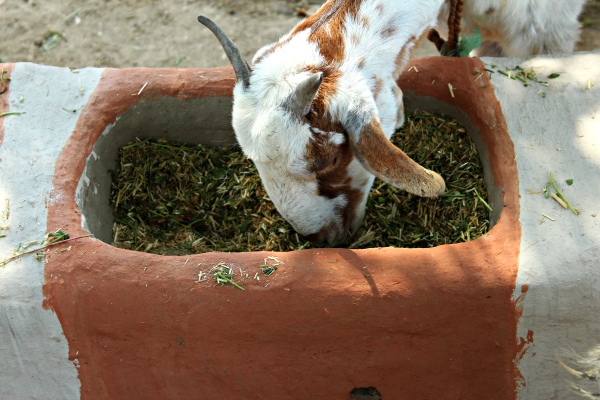One-size-fits-all ‘livestock less’ measures will not serve some one billion smallholder livestock farmers and herders
- From
-
Published on
02.08.18
- Impact Area

Smallholder dairying in Kenya (photo credit: Accelerated Value Chain Development/Sophie Mbugua).
‘Once again, the debate on sustainable diets and in particular on (not) eating animal-derived products is resurfacing in the media, as illustrated most recently by an article in The Guardian. The paper reported on a study by J. Poore and T. Nemecek entitled ‘Reducing food’s environmental impacts through producers and consumers’, published in the latest edition of Science magazine. The article concludes that ‘avoiding meat and dairy products is the single biggest way to reduce your environmental impact on the planet’. Both the study and the article recognize the ‘large variability in environmental impact from different farms’ and the need to deal with the most harmful ones. Still, they seem to overlook the evidence from the 1.3 billion smallholder farmers and livestock keepers for whom livestock is an important source of income and food security.
Family goat keeping in India (photo credit: ILRI/Christoph Weber).
The vast majority of these smallholder farmers and livestock keepers produce meat and dairy in a sustainable way (socially, economically and environmentally friendly).
They make little use of external inputs such as fossil fuels, use manure to fertilize soils in integrated crop production and grow their own animal feed.
They therefore cause less greenhouse gas emissions related to transport, manure production and use of fertilizers.
Moreover, their production systems substantially benefits the environment, thanks to its many eco-system services for climate change mitigation and biodiversity increase.
‘The importance of livestock for smallholder famers goes far beyond the economic logic of certain types of industrial livestock keeping. It benefits crop production, as animals are used to work on the land and their manure to fertilize the soil. It has a clear economic and social value; farmers derive an income from selling milk and live animals, and livestock plays an important socio-cultural role in their lives, for instance as a wedding dowry. Livestock also contribute significantly to improved food security and nutrition. . . . A reasonable consumption of animal-derived products—produced locally and using sustainable farming practices—could improve their food security and nutrition substantially. Milk, for instance, is an excellent source of macronutrients, dietary energy, lipids and proteins of high nutritional quality. It also provides carbohydrates, calcium and vitamins. But the role of animal- derived products must also be recognized in fighting the so-called “hidden hunger” or micronutrient deficiency, which is affecting over 2 billion people worldwide. . . .
Related news
-

IRRI and ICRISAT Set a Joint Vision to demonstrate Integrated Seed Systems for Dryland Farming in South Asia
International Crops Research Institute for the Semi-Arid Tropics (ICRISAT)25.04.25-
Food security
CGIAR centers align efforts to drive inclusive, impact-oriented research from 2025 to 2027 New Delhi…
Read more -
-

Unveiling a new vision for animal breeding in Africa
International Livestock Research Institute (ILRI)16.04.25-
Food security
The African Animal Breeding Network (AABNet), a new platform for animal breeding professionals to ad…
Read more -
-

Fostering collaboration and knowledge sharing in digital agriculture
International Livestock Research Institute (ILRI)16.04.25-
Food security
Stronger institutional partnerships and knowledge co-creation will accelerate the digital agricultur…
Read more -

